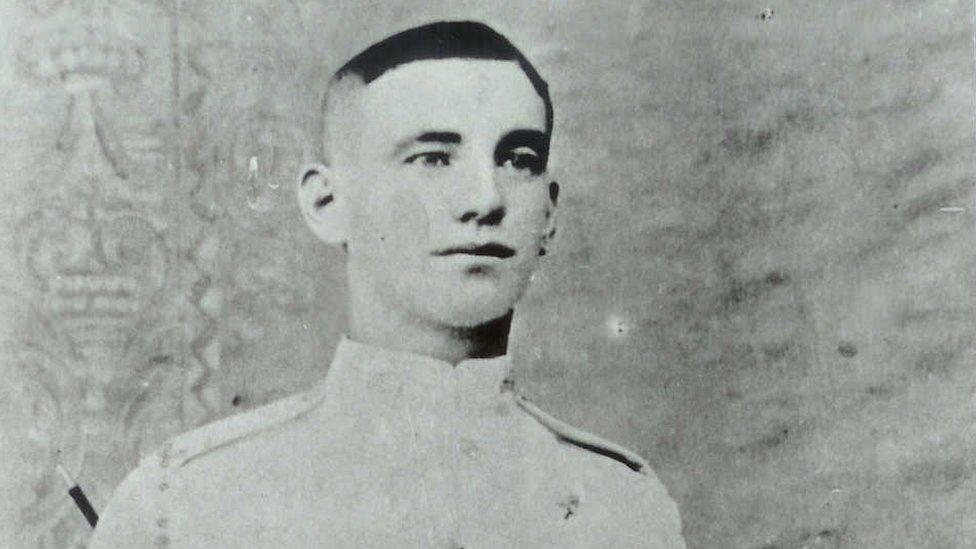Belfast father's WWI letter may have saved son's life
- Published
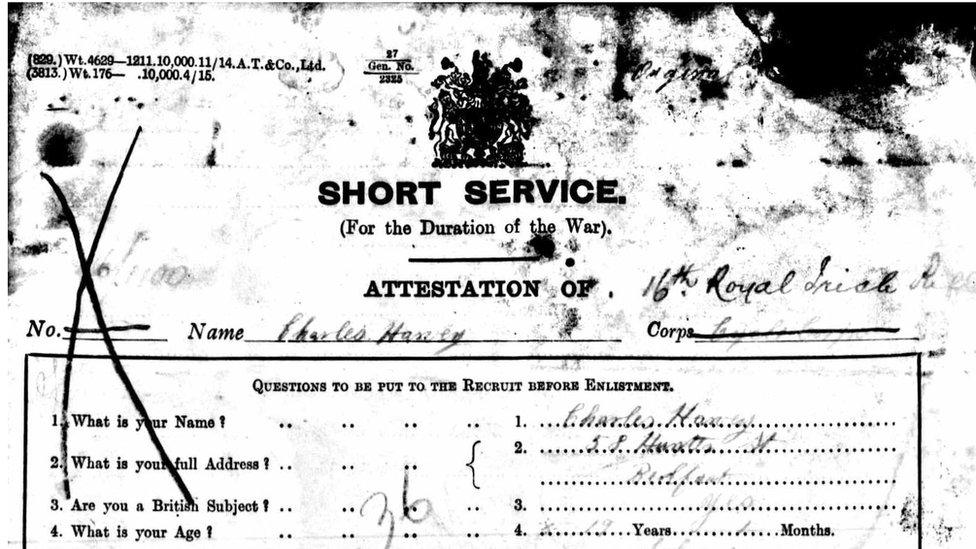
Officially you had to be 18 to join the Army and 19 to fight overseas
In 1915, my great-grandfather Charles Harvey signed up with the Royal Irish Rifles, destined for the battlefields of France.
His forms checked out; age 19, good references and medically fit.
Except, like thousands of young men who enlisted, he lied.
He was only 15.
In September 1916, his father, James Harvey of Matilda Street in Belfast, wrote to the Infantry Record Office in Dublin, asking them to get his now 16-year-old son "off the army" because he was "too young to be away".
King and country
In the letter, which I recently uncovered in the military archives, James writes that Charles had been in France for 11 months and that he had three other sons "serving their King and country".
A band of brothers and brave young Charles did not want to be left behind.
Officially you had to be 18 to join the Army and 19 to fight overseas.
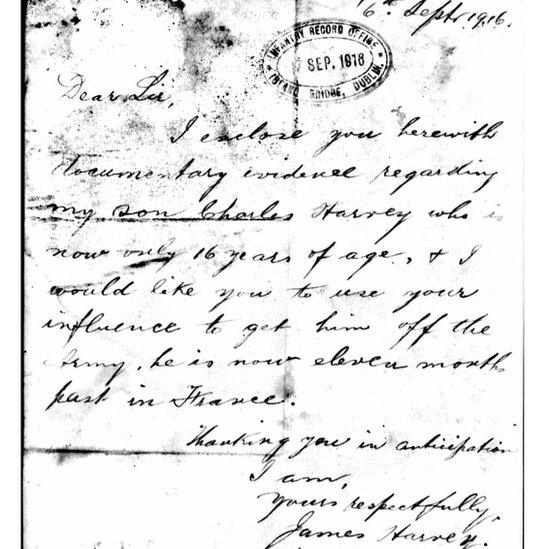
James Harvey wrote to the Infantry Record Office in Dublin, asking them to get his now 16-year-old son "off the army"
It is estimated that about 210,000 boys and young men answered the call to join the British war effort.
By September 1916, the Battle of the Somme was in its third month and its horror was becoming apparent to families across Ireland.
There had been a devastating loss of life.
Fathers, brothers and sons had marched off to great fanfare months before, and many of them would never come home.
In putting pen to paper, James was doing perhaps the only thing he could to ensure that at least one of his sons would survive the war.
It worked.
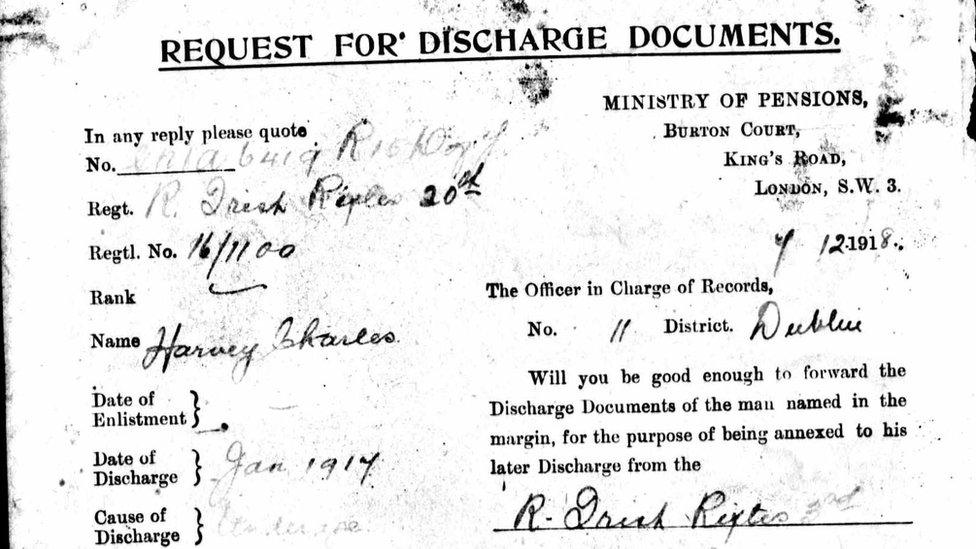
Charles Harvey was discharged in January 1917
Documents in the archives show that within days of the letter being received in Dublin the discharge order was in motion, with 'underage' listed as the cause.
In the trenches
Charles was discharged in January 1917. The letter may well have saved his life.
Family members say that my great-grandfather spoke of serving in the trenches and witnessed friends being killed.
He was shot in the elbow during his time in France, leaving him with a life-long disability in his arm. He later became a Chelsea Pensioner.
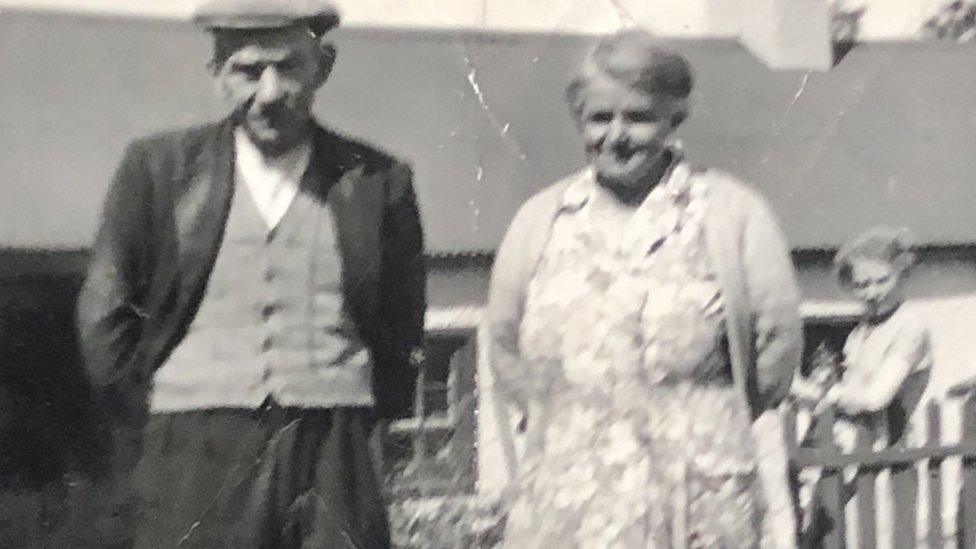
Charles Harvey in later life with his wife Sarah
I will never know what he made of the letter. Whether he was relieved to be going home, or if he had wanted to stay.
Despite what he witnessed at such a young age, Charles Harvey was fortunate.
My great-great-grandfather, John Brownlee from Lurgan, was killed on the first day of the Battle of the Somme at Beaumont-Hamel.
His name is listed among 72,000 others on the Thiepval Memorial who have no known grave.
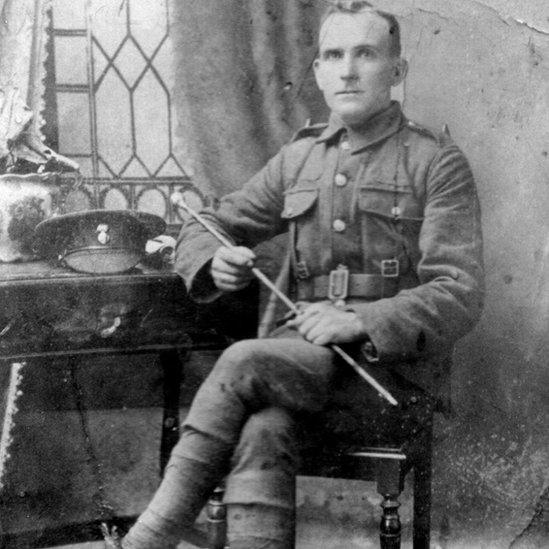
John Brownlee, who was killed on the first day of the Battle of the Somme
He left behind a widow and several children.
A century on, I will be in France attending Armistice Day commemorations with my father.
World War One impacted my family, like it did many in Ireland.
A period of history which will always fascinate and move us.
- Published1 July 2016
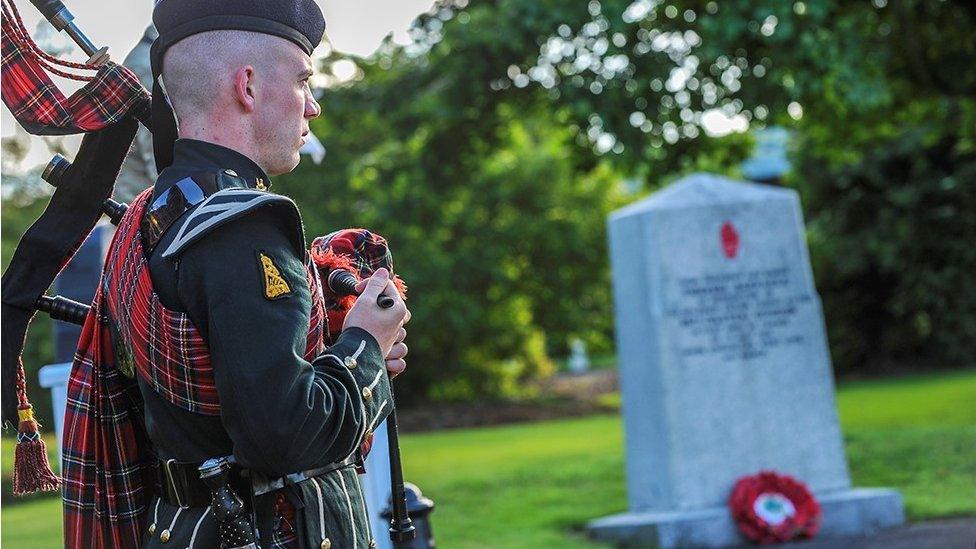
- Published28 June 2016
